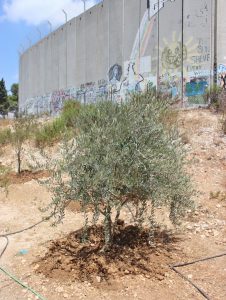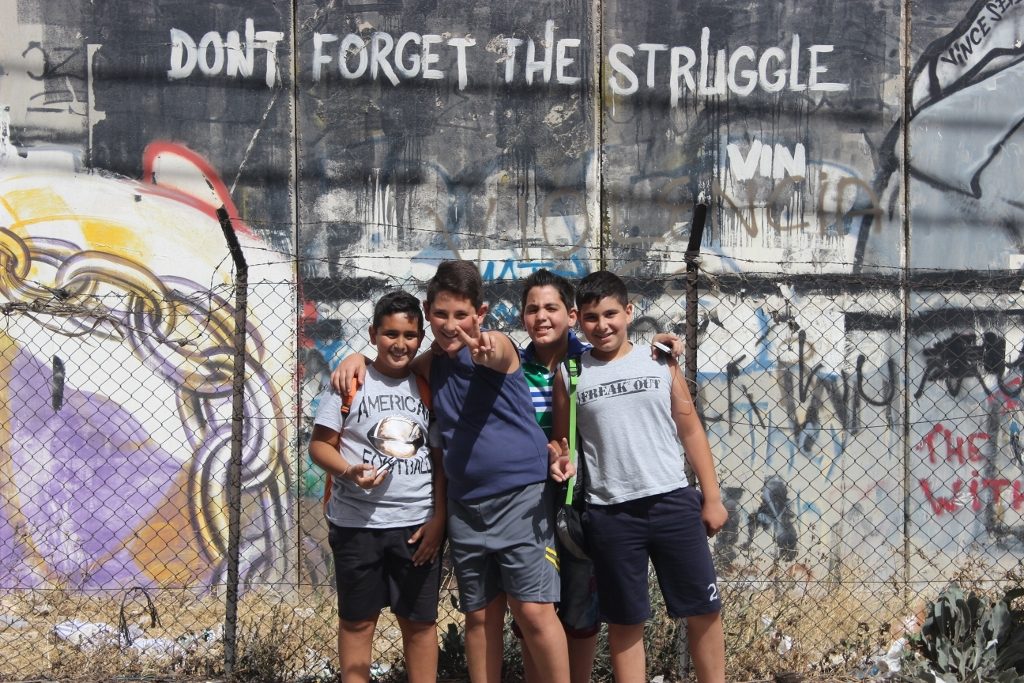 Children are an important focus of Wi’am’s activities, as occupation places psychological, social and physical burdens on them. Physical danger, political turbulence, and exposure to violent and graphic images increase the risk of trauma, anxiety, depression and stress-related symptoms. We focus on “trauma coping” more than “trauma healing” since the trauma is chronic and multi-layered. That is why our work focuses on ‘trauma coping’ rather than finite ‘Post Traumatic Stress Disorders.’ Supported by worldwide research, our work indicates that early intervention and application of what we call “first aid” can protect children from developing more serious psychological problems and unbalanced behaviors as a result of trauma.
Children are an important focus of Wi’am’s activities, as occupation places psychological, social and physical burdens on them. Physical danger, political turbulence, and exposure to violent and graphic images increase the risk of trauma, anxiety, depression and stress-related symptoms. We focus on “trauma coping” more than “trauma healing” since the trauma is chronic and multi-layered. That is why our work focuses on ‘trauma coping’ rather than finite ‘Post Traumatic Stress Disorders.’ Supported by worldwide research, our work indicates that early intervention and application of what we call “first aid” can protect children from developing more serious psychological problems and unbalanced behaviors as a result of trauma.
Through creative and self-esteem reinforcing activities, Wi’am advocates for children to work through their experiences and emotions so they may avoid silent suffering.
Our approach to trauma coping is divided into three main categories:
1) Group activities through our Children’s Program
Our Children’s Program entails an array of recreational and creative activities, such as field trips to nature reserves and museums and activities in drama, mask-acting, folk dancing, Piñata decorating, storytelling, music, drawing, and mural painting. In these activities, children have a safe haven to learn, interact with their peers, and ventilate feelings of anxiety and stress. During our group time, psychologists and social workers can monitor children’s behaviors and recognize if a child requires additional individualized therapy.
2) Individual Therapeutic Counseling
Counselors deal with individual cases of trauma in a safe and confidential environment that induces active listening and emotional ventilation.
3) Workshops for parents and teachers
We hold workshops for families in the community to increase awareness about the symptoms, causes, and ways of dealing with trauma and crisis. Our workshops reduce stigma surrounding psychological issues and provide parents with resources for more information and ways to seek psychological support should they or their children need it. We also have workshops for teachers, introducing them to essential counseling techniques and providing resources and support for dealing with cases that need further psychological attention in the classroom.

